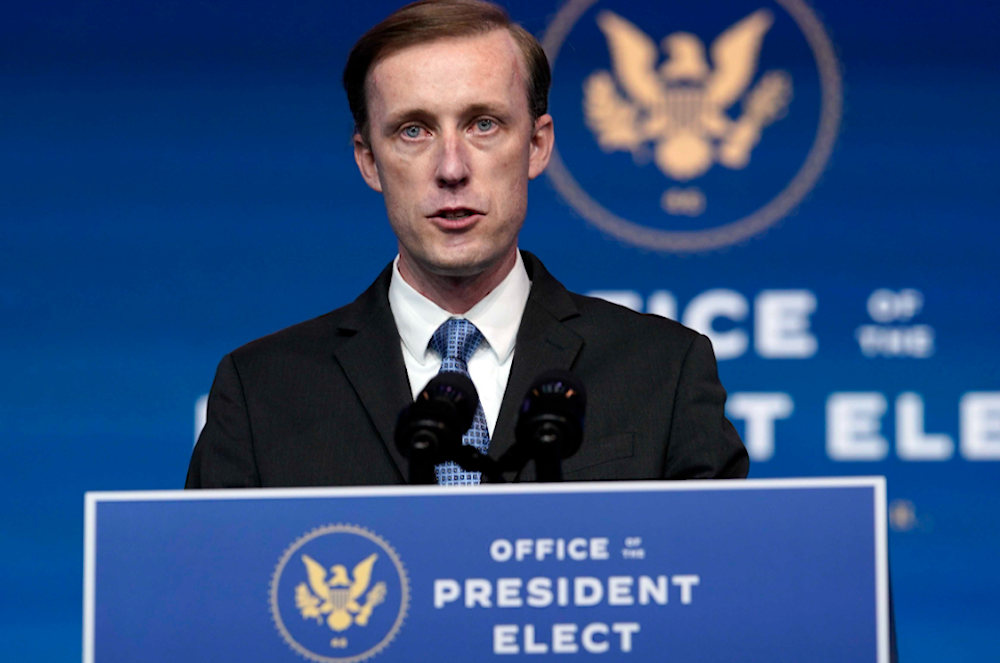China to raise Taiwan concerns, issue 'serious demands' to Sullivan
Sullivan will go to China from August 27 to 29 for what Beijing describes as "a new round of China-US strategic communication."
-

National Security Adviser Jake Sullivan speaks at the Queen Theatre in Wilmington, Delaware (AP)
China intends to convey worries over Taiwan during US National Security Adviser Jake Sullivan's visit next week, according to a representative for the Chinese Foreign Ministry's Department of North American and Oceanian Affairs.
The spokesman told state-run China Central Television that the country will "express its serious concerns on the Taiwan issue, China's development rights and strategic security, as well as present its firm position and put forward serious demands."
National Security Advisor Jake Sullivan is scheduled to visit China next week to meet with Foreign Minister Wang Yi, Axios reported Friday, citing three sources familiar with the matter.
The announcement marks the first visit by a US national security advisor to China since 2016, although other high-ranking officials, such as Secretary of State Antony Blinken, have made trips to China over the past two years.
The Chinese spokesperson stated that the Taiwan issue represents a critical boundary in Sino-US relations that must not be breached, emphasizing that "Taiwan independence" poses the greatest threat to peace and stability in the Taiwan Strait.
"The US must adhere to the 'One China' principle and the provisions of the three joint Sino-US communiques, fulfill its commitments not to support Taiwan's independence," according to a spokesperson.
The spokesperson stated that countries outside the area should not encourage conflict in the South China Sea or aggravate tensions. The representative stated that China does not follow the Western colonialism or ideology export strategy.
"China does not follow the old Western path of colonization and plunder, nor does it adhere to a path where a strong country must necessarily be a usurper, nor does it engage in ideological export," according to a spokesperson.
Last month, China announced stopping important arms control and non-proliferation negotiations with the United States, accusing Washington of continuing military supplies to Taiwan.
Lin Jian, a spokesperson for the Chinese Foreign Ministry, announced that the US continued to sell weapons to Taiwan despite Beijing's objections. The US actions had "severely damaged the political atmosphere necessary for continued arms control consultations between the two sides," he said.

 2 Min Read
2 Min Read










